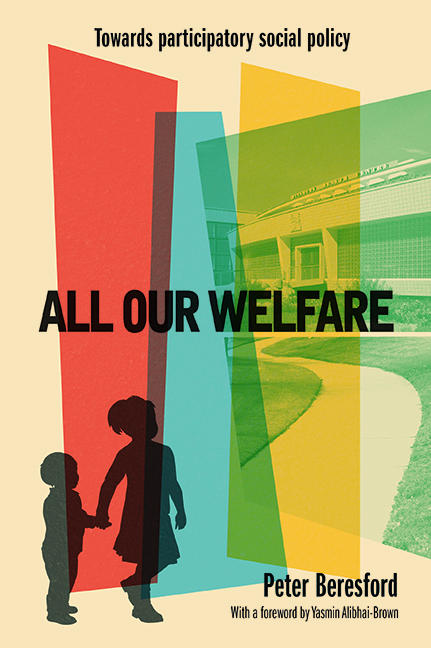Book contents
- Frontmatter
- Contents
- List of photographs and sources
- Foreword
- Dedication
- Acknowledgements
- Introduction Owning not othering our welfare
- Part One The legacy of the past
- Part Two The way to the future
- Afterword The future: a different way forward?
- Appendix One The family
- Appendix Two Research projects and related publications
- References
- Index
Ten - A new set of principles for social policy
Published online by Cambridge University Press: 01 September 2022
- Frontmatter
- Contents
- List of photographs and sources
- Foreword
- Dedication
- Acknowledgements
- Introduction Owning not othering our welfare
- Part One The legacy of the past
- Part Two The way to the future
- Afterword The future: a different way forward?
- Appendix One The family
- Appendix Two Research projects and related publications
- References
- Index
Summary
Nothing About Us Without Us
(Campaigning slogan of the international disabled people’s movement)Disability … the social oppression of people with impairments … like racism, sexism, heterosexism and all other forms of social oppression … is a human creation. It is impossible, therefore, to confront one type of oppression without confronting them all and, of course, the cultural values that created and sustain them.
(Barnes, 1996, xii)It is perhaps not surprising that a state welfare system based on self-appointed experts imposing their analyses and ideas on others has often failed to command popular support. The market alternative has been given a much homelier and more familiar feel by its advocates, as if buying and selling public services is the equivalent of the weekly shop or buying a new sofa. However, as we have seen, this model is no less mediated by experts and ideologues and the individualised consumer is hardly king or queen of the system. We have now also seen how many disabled people have experienced charities as similarly excluding and patronising. This raises fundamental questions about how social policy might be developed, organised and undertaken in radically different ways, which address and overcome such failings and limitations.
Why poor treatment?
Here we may turn to the new welfare service user movements for insights and guidance. First though, before moving on, we should perhaps take a more careful look at longstanding problems associated with welfare services. These have tended to be framed in terms of the poor quality of some services, sometimes linked with abuse and neglect, as well as the denial of more general human and civil rights. Sadly, these problems can be traced back almost to the inception of the welfare state and have been identified under governments of all political colours. Thus the succession of high profile childcare tragedies and scandals from Dennis O’Neill in 1944, through Maria Colwell in 1973 and Jasmine Beckford in 1984, to Victoria Climbié in 2000, Baby Peter in 2007 and Daniel Pelka in 2012 (Hopkins, 2007). In Chapter Six, we heard about the widespread and appalling abuse of older people, people with learning difficulties and mental health service users exposed in the 1960s.
- Type
- Chapter
- Information
- All our WelfareTowards Participatory Social Policy, pp. 197 - 216Publisher: Bristol University PressPrint publication year: 2016

